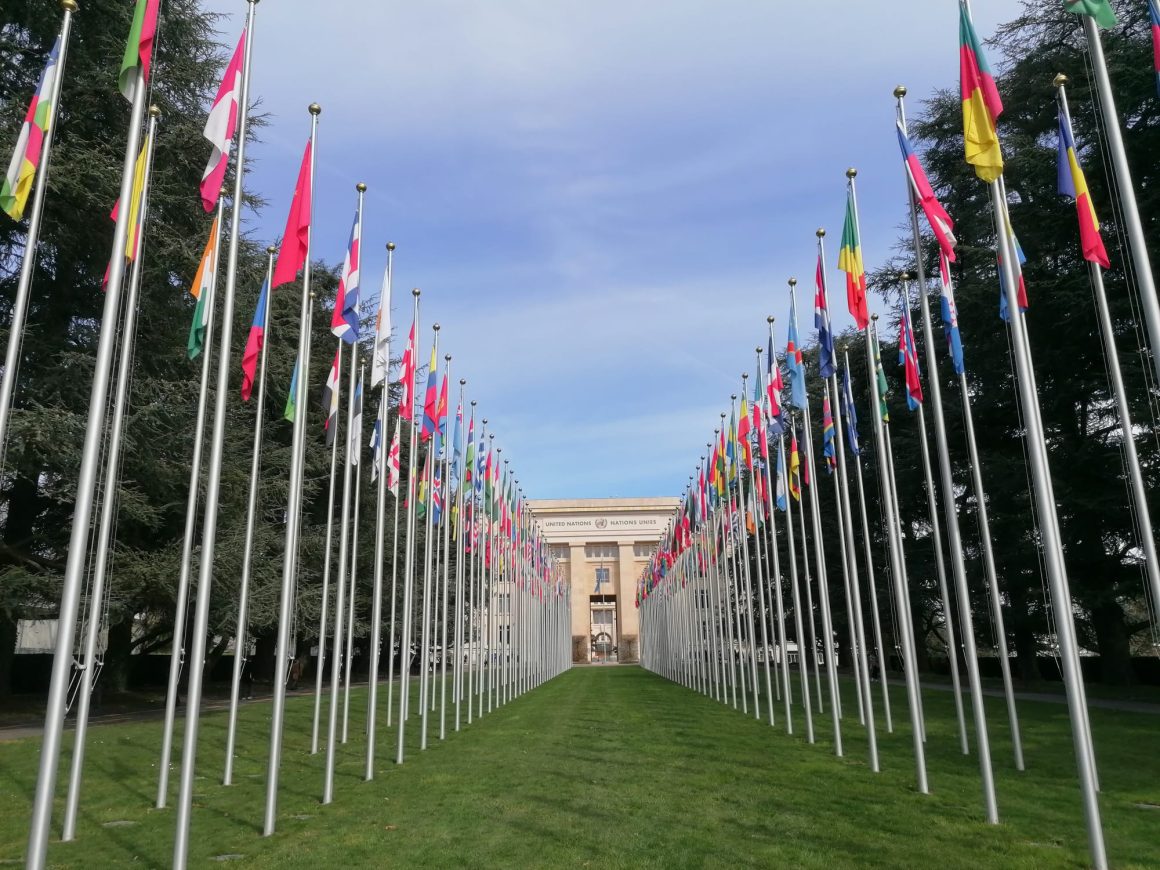Those who believe in the need for a stronger and more efficient UN are increasingly concerned about its future. The whole humanity should be concerned. The horizon shows growing selfish nationalisms and arms race, no appetite for more multilateral cooperation, and in particular a paralysed Security Council. While in the UN in New York pessimism seems to dominate all minds, in Geneva, delegates, secretariats, NGOs continue working. The agenda of International Geneva is essential for any « UN 2.0 » that humankind can envisage if it wants to survive. It is not a « collateral » to the political agenda.
What is “International Geneva”
This ecosystem encompasses 40 international organisations ( five UN specialised agencies and several UN entities), 180 Permanent Missions, 400 NGOs.[1] It is an amazing concentration of experts, delegates, negotiators interacting daily, producing data, analyses, ideas.
What makes Geneva unique among other UN headquarters is the scope and relevance of its agenda. From humanitarian aid, refugees and migration to internet governance, from international trade to global health, from intellectual property to economic development, from human rights to biodiversity, from employment and social protection policies to climate change, almost all the “non-military threats” and the “roots of current multifaceted crises”[2] are addressed in Geneva.
Considering the danger of a nuclear conflict, can we take the risk of a multilateral system driven by short-sighted political goals? Rather the other way around: economic, social, environmental and human rights goals should be the driving force leading political decisions.
Why International Geneva matters in any debate on a “UN 2.0”
Three key features make the Geneva ecosystem highly relevant today and for the future.
First, the analytical, negotiating and consensus-building work is mainly normative and regulatory. It aims at establishing rules and mechanisms to manage the globalisation processes. The UN Charter values and the SDGs move from theory to reality each time a multilateral instrument is used in Geneva: a WHO regulation on global health, a Human Rights Council resolution, a WTO agreement on international trade, an ILO convention on rights and obligations for workers and employers, an ITU debate on the “terra incognita” of AI. There are many nuances and shortcomings in this normative landscape, from legally binding provisions to «best endeavour» recommendations or symbolic declarations. But they represent decades of multilateralism – a political treasure still to be fully assessed and understood.
Secondly, Geneva reaches the “country level” with the information, research, rules and standards it produces, but also with its role in transforming that work into concrete world-wide technical assistance through countless trainings, capacity building programmes, policy advice and advocacy. The humanitarian assistance is the most visible in the headlines, but whenever a policymaker says to a UN expert: « I changed my mind following your training », the reward is more significant than a headline.
Finally, Geneva is a puzzle: it is the main multilateral crossroads of intersectoral issues characterising increasingly complex crises. The list of linkages among multilateral topics is long: trade, food security and health; migration, refugees and climate change; human rights, health, employment and social security policies; gender, electronic commerce and economic development; intellectual property, access to vaccines and technology; labour markets and artificial intelligence; internet governance and digital economy; blue and green economies, supply chains and investments…
How to strengthen the bridges between UN Geneva and UN New York
What lessons can be drawn from the Geneva experience? Can the trust being built on these «technical» topics be capitalised and transferred from Geneva to New York? How can the exchanges between experts and decision-makers lead to knowledge-based policies following the Geneva approach? How can all the global public goods – peace in the first place – be managed in a constructive way for the sake of common interests?
As in New York, there is frustration in Geneva because geopolitics contaminates many negotiations. But the ambiance is still more positive, starting with Swiss public opinion and politicians that do not practice the sport of criticising the UN for the fun of it.
Some actions could stimulate a positive contagion of New York by the Geneva atmosphere and «technical » work:
First, the proposal to establish a Global Resilience Council[3] as a subsidiary body of the General Assembly (or of ECOSOC) to address the « non-military threats » deserves attention – particularly for the Geneva agenda, grounded on these threats. The proposal for this Council, beyond political support, requires a solid and transparent articulation with the Geneva ecosystem, above the traditional interagency silos. It could be a catalyst to ensure, more than coordination, coherence of values and ideas within the UN system.
Secondly, civil society has to be mobilised. Where are the Greta Thunbergs willing to take to the streets to defend the UN values, clamouring for a « UN 2.0 » for future generations? Debates among academics and diplomats on the niceties of the Charter are necessary, but weak and ineffective if they do not involve citizens. This includes the private sector: Geneva is well equipped to develop more dialogues and cooperation between diplomats, researchers and businessmen.[4]
Finally, all players in New York and Geneva should intensify their contacts before the Summit of the Future.[5] They should take stock together of the SDGs. They should act together to raise awareness on multilateralism. They should identify how the work done in Geneva could bring oxygen, substance and steam to the New York process.
[1] https://www.geneve-int.ch/genevainternational [2] Terms used by Georgios Kostakos in https://www.foggs.org/wp-content/uploads/2023/09/PRG-Booklet-on-An-Enhanced-Role-for-the-UN-in-Peace-and-Human-Security-Final10Sept2023_FOGGS-Papers-2023.pdf , see in particular p.42. [3] Proposal made by FOGGS: https://www.foggs.org/wp-content/uploads/2023/09/PRG-Booklet-on-An-Enhanced-Role-for-the-UN-in-Peace-and-Human-Security-Final10Sept2023_FOGGS-Papers-2023.pdf p.40. [4] GESDA, the Geneva Science and Diplomacy Anticipator is a good example. https://gesda.global/ [5] Scheduled to take place in September 2024.


